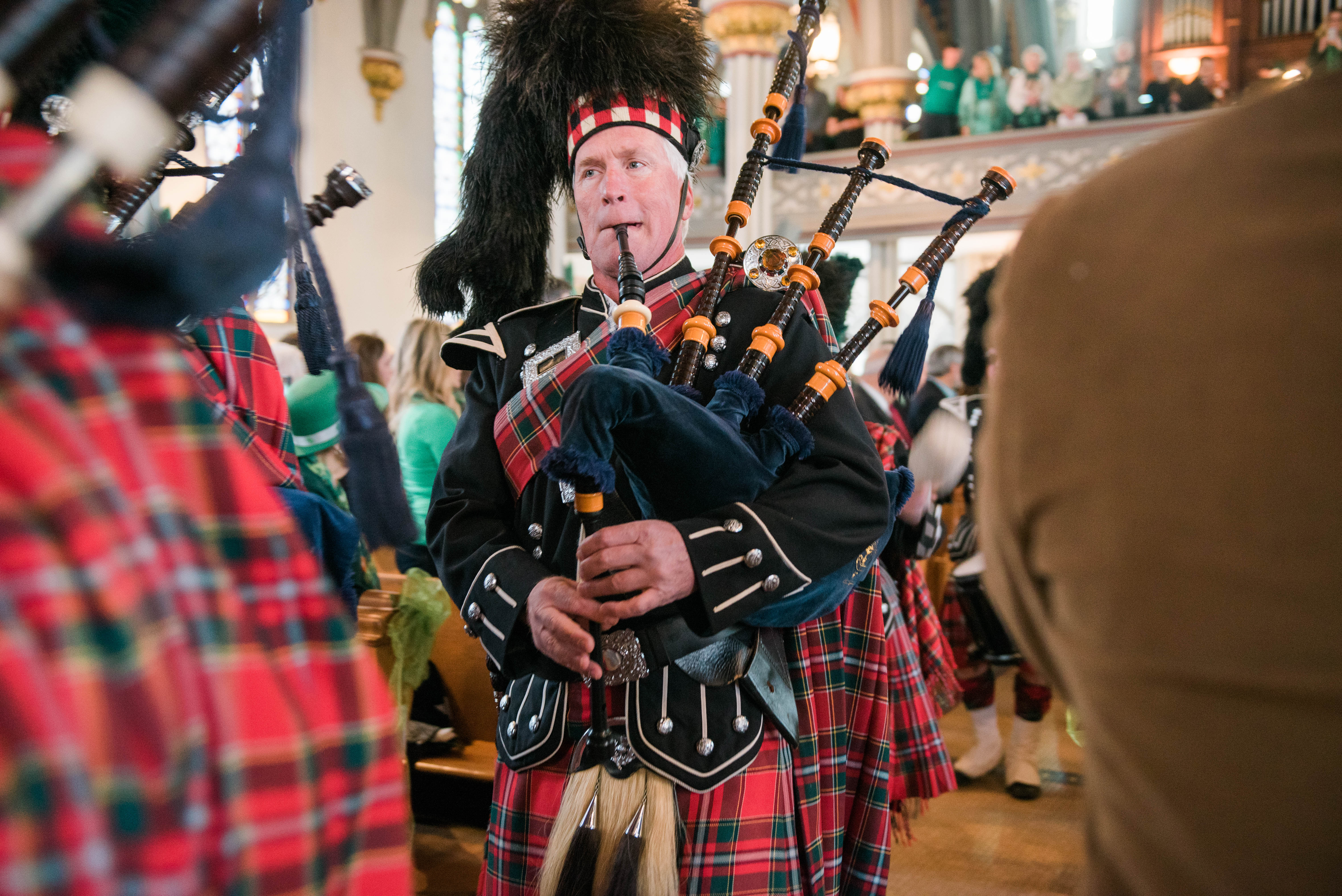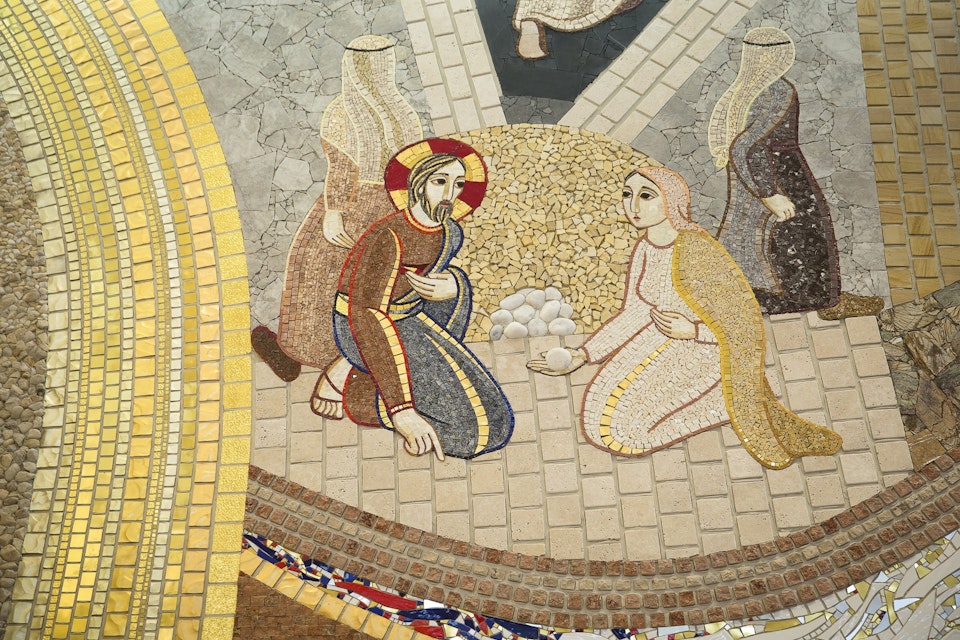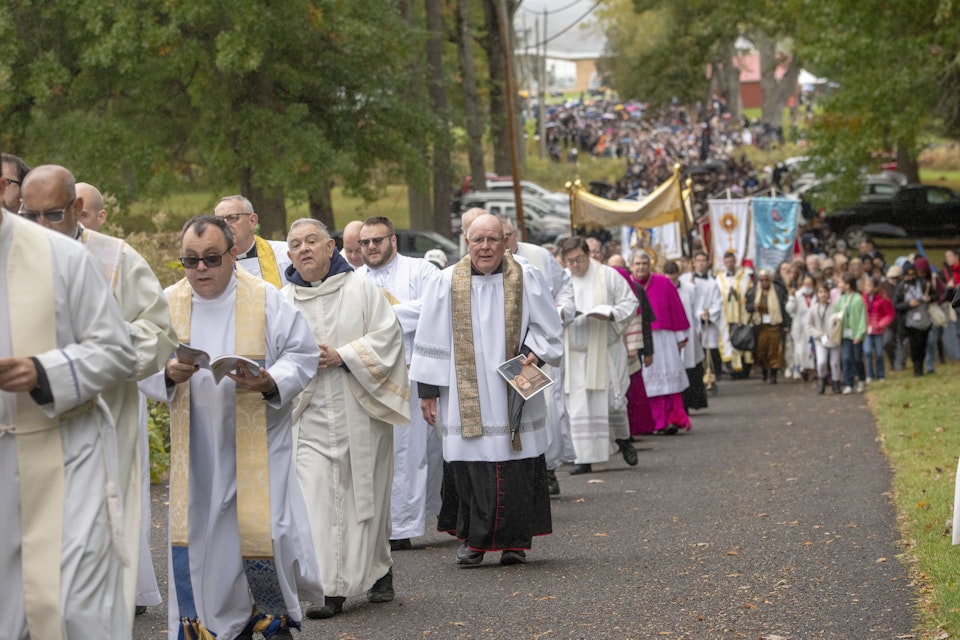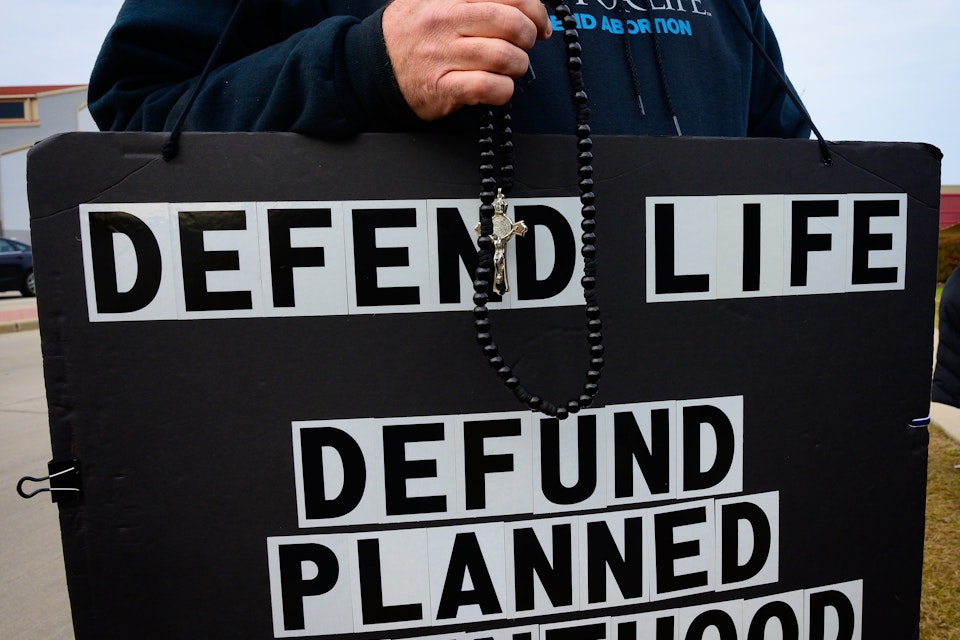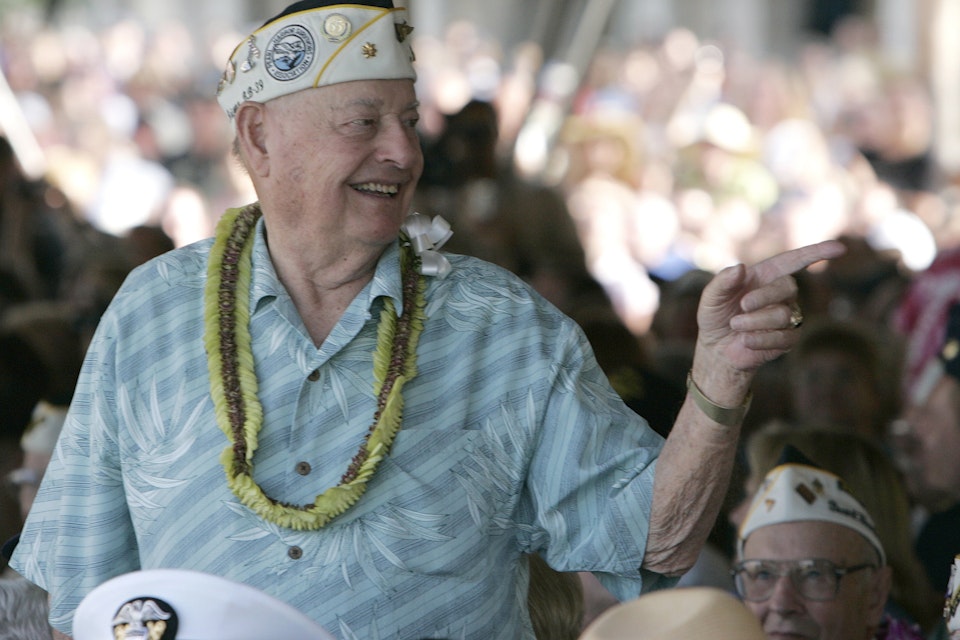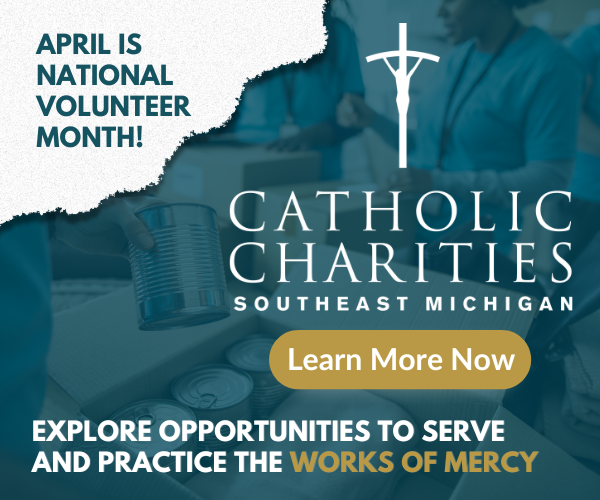St. Patrick’s Day a chance to celebrate, imitate the ‘great evangelizer of the Irish,’ Archbishop Vigneron says
DETROIT — Detroit’s Irish community celebrated a day of clapping, singing and dancing on March 17, just as their ancestors have done for hundreds of years.
But when Detroit’s Irish descendants gathered at Most Holy Trinity Church in Corktown, they did what St. Patrick taught their ancestors many years ago, praying and giving thanks to Jesus Christ, whose love and sacrifice saved them from sin and despair.
Detroit Archbishop Allen H. Vigneron — who readily admits he has no Irish ancestry — followed a procession of Irish dancers, drummers and pipe players who made their way down the aisle of Detroit’s oldest English-speaking parish.
“From time to time, I’m asked this question: 'Is St. Patrick’s Day a secular holiday or a religious one?' The answer is, ‘Yes,’” Archbishop Vigneron told the congregation. “The Irish became one people, a Christian people, united by the truth of the Gospel, of goodness and justice. So we gather together to hear the Gospel proclaimed by Patrick to the Irish people. So let us prepare ourselves to celebrate the Holy Eucharist brought to Ireland by Patrick.”
The annual St. Patrick’s Day Mass at Most Holy Trinity has been a staple on Detroit’s calendar, with dignitaries from Metro Detroit’s business, political, legal and philanthropic communities in attendance for the annual “Sharin’ O’ the Green” fundraiser for the various ministries operated out of Most Holy Trinity.

Fr. Ryan Adams, associate pastor of Most Holy Trinity and Ste. Anne de Detroit parishes, delivered the homily, bringing up his family’s own Irish heritage and how the culture’s traditions were passed down through the generations.
“I’m always fascinated by the stories, not really knowing if they are true; the stories seemed to change depending on which aunt you ask about our family history,” Fr. Adams joked. “Thank God for Ancestry.com. But there are parts of the Irish side that have not gone away: Irish superstition and the Catholic faith. As a kid, riding in a car with my mother, if there was a funeral procession passing by, my mother would tell my sister and I to hold our breath until the procession passes. Or, what I thought, ‘Until I pass out.’”
Fr. Adams explained how his Irish-Catholic roots stayed in the family, even after members of the family married Protestants. Fr. Adams said he was raised Lutheran, but was confirmed Catholic, and next month, he will be presiding at a Catholic wedding with his 91-year-old mother and his step-father.
“Which is both fantastic and weird,” Fr. Adams said. “But I told her she didn’t have to go through marriage preparation, because she raised me, which already makes her a saint.”
Fr. Adams said today the faithful celebrate St. Patrick bringing the life-changing news of Jesus Christ to Ireland — of God becoming man, to live with man, suffer with man, and die for man, so that man's sin could be removed.

“We have a faith that teaches us the infinite dignity of each human person. That is a radical thing, the definite dignity in knowing that you are perfectly and wonderfully made,” Fr. Adams said. “The deepest act of love, of self-sacrificing love, is that Jesus died for us, to save us.”
Fr. Adams said those redeeming truths about Christianity brought the Irish to America to build a Christian culture around charity, love and giving of one’s self.
“We gather here today to celebrate generations of people trying to give of themselves to others and to build a society based on Christ,” Fr. Adams said. “Suffering in love for their children, loving your enemy, forgiving those who hurt you — that is what drives us. It is truly heaven on earth where love dwells, and this love has an Author, and the author of this love is the heart of Christ, who reveals Himself to be God in the way He loves us.”
An Irish Catholic homecoming
The Mass was filled with Gaelic imagery and celebrations, Irish dancers presenting the gifts to Archbishop Vigneron and a singing of “Lady of Knock” after Communion.
The congregation was mostly dressed in green, including representatives from the Gaelic League and the Ancient Order of Hibernians.
“Months of planning and preparing goes into this Mass and the day,” Rebecca Vogel, Christian service and outreach coordinator at Most Holy Trinity and Ste. Anne, told Detroit Catholic. “We always have our St. Patrick’s Day celebration on St. Patrick’s Day, and thanks to (former pastor) Msgr. Clement Kern, ‘Sharin’ O’ the Green’ has been the main support for our outreach ministry.”


Vogel said families throughout the Archdiocese of Detroit return to Most Holy Trinity for St. Patrick’s Day to remember family members who once lived in the Corktown neighborhood as parishioners at Most Holy Trinity.
The Irish ancestral connection and family ties to Irish culture bring people back to Most Holy Trinity and to support the parish in all of its ministry efforts, said Robert Riney, president of health care operations and chief operating officer of Henry Ford Health System.
“'Sharin’ O’ the Green’ is about asking very generous Detroiters and very generous Catholics to reach into their pockets and support Most Holy Trinity Church and all the programs they do in Corktown,” said Riney, chairman of this year’s fundraiser. “As an Irish-Catholic, I was honored to be asked to be chairperson this year to help raise funds and build relationships to help the parish do its mission in the neighborhood.”
At the end of Mass, Riney noted the tremendous development in the Corktown area, with Ford Motor Company’s purchase of the Michigan Central Station, which looks to brings thousands of jobs and millions of dollars of investment to the rapidly changing neighborhood.
But with all the recent growth in Corktown, Riney maintains the area’s Irish roots are unshakable.

“Most Holy Trinity Church is still a place of centering for lots of Irish people,” Riney said. “There are not a lot of places that have a history with the Irish the way Corktown and Most Holy Trinity does. So people gather here not just because of the church, but because of the rich history of Corktown itself. The fact that it was an Irish enclave at a time when the Irish were not treated all that great in the early days, it is still a homecoming for a lot of people.”
Building a culture of lasting peace
Echoing Corktown’s history as a refuge for immigrants, migrants and those seeking religious freedom, Archbishop Vigneron turned attention at the end of Mass to the March 15 act of terrorism at a mosque in Christchurch, New Zealand, which killed more than 50 people.
“As I think about the pride in the rich culture of the ethnic parishes, particularly of the Irish at Most Holy Trinity, I once again pray that we may make the world a place of tolerance and acceptance of people of all religions,” Archbishop Vigneron said, “a world where no one would ever, anywhere, ever commit acts of violence in the name of God. It's blasphemy.”
Riney added that the St. Patrick’s Day festivities at Most Holy Trinity are built on people being generous and caring for one another, offering the healing presence of Christ to anyone in need, regardless of race, religion or creed.
“People are really excited about all the development in Detroit and all the fabulous things we are seeing, but we still realize there is much work to do to for those less fortunate than us,” Riney said. “We want to continue to celebrate this greatness, this faith our ancestors gave us, but we do that by giving to others. That is the faith our parents taught us. That is what it means to be a missionary parish in Corktown.”



